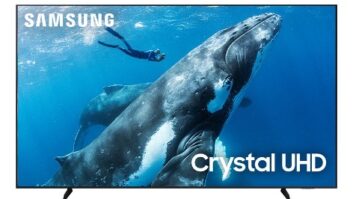Seattle
– RealNetworks followed through on its plans to appeal a preliminary
injunction preventing it from marketing DVD-copying
PC software and a planned set-top DVD
jukebox, which stores movie DVDs on an internal hard drive.
The company filed an appeal of
an August decision by a U.S. District Court judge in San Francisco.
Real contends the court made multiple legal errors.
In August, the District Court for northern California
issued the preliminary injunction, contending that Real would likely lose in a
lawsuit lodged late last year by the movie industry. The lawsuit alleges the
Real products violate the Digital Millenium Copyright Act (DMCA) and the terms
of Real’s Content Scramble System (CSS)
license. The judge ruled that Hollywood would suffer
“irreparable harm” if the products went on the market because Real’s
technologies do not limit multiple consumers from copying the same disc, nor do
they prevent consumers from renting a disc and copying it.
The PC software, called RealDVD, was on the market for several
days in October 2008 before District Court judge Marilyn Patel issued a temporary
retraining order prohibiting sales until she decided whether a preliminary
injunction was justified. The DVD
jukebox was in development but was not yet on the market.
In issuing the preliminary injunction in August of this year, Patel
was unequivocal in stating that:
·
products that copy DVD
content to a hard drive, including their encryption, violate the DMCA and CSS license stipulations because they remove other CSS copy-control technologies. Those technologies
are needed to implement the license agreement’s requirements for drive locking
[locking a DVD drive after
insertion of a protected disc until a player authenticates the disc],
authentication, and bus encryption.
·
the CSS
license agreement “does not give license to copy DVD
content to a hard drive permanently” and that the only authorized copying “is
temporary copying, i.e. buffering or caching, because it is a necessary part of
the playback process in all DVD
players.”
·
CSS
protections are designed expressly to prevent “unauthorized interception and
the creation of a copy of the keys and DVD
video content on a storage device for future playback without the DVD.”
·
the DMCA “broadened copyright owners’ rights
beyond the Sony holding [1984 Betamax case]” and “did clearly rebalance the
competing interests of copyright owners against copyright users.”
In its appeal of the preliminary
injunction to the Ninth Circuit Court of Appeals in San Francisco, Real contends the court erred
because:
–the court only assumed the movie
industry would suffer irreparable harm without considering the issue.
·
the court wrongly stated that it was prevented
by statute from considering the public interest in Real’s planned products.
·
the court “improperly disregarded the doctrine
of fair use” and that “the only evidence adduced at the preliminary injunction
suggested that the RealDVD products would only be used for fair use rights.”
·
in contending the products would “likely violate
the CSS agreement,” the court
“refused to analyze the operative terms of the agreement and instead premised
its ruling on ambiguous, non-binding preambles and a recital to the agreement.”
·
the set-top DVD
jukebox does not circumvent the anti-circumvention technologies ARccOS and
RipGuard because Real “purposely designed Facet [the jukebox] to never encounter
ARccOS and RipGuard” and thus “cannot give rise to a Section 1201(b)
[copy-control] violation because intent is irrelevant under the DMCA.” The
court did not make a similar finding on the so-called Vegas software for PCs.
·
with a CSS
license, the products do not create “an access violation” under the DMCA
because “as numerous courts have held, and as the legislative history of the
DMCA makes clear, what happens after access is irrelevant for DMCA purposes.”
·
with a CSS
license, the products do not constitute a DMCA “copy-control violation” because
“nothing in the CSS [license ]
agreement prohibits the kind of copying that the RealDVD products allow – of
scrambled encrypted CSS data.”













